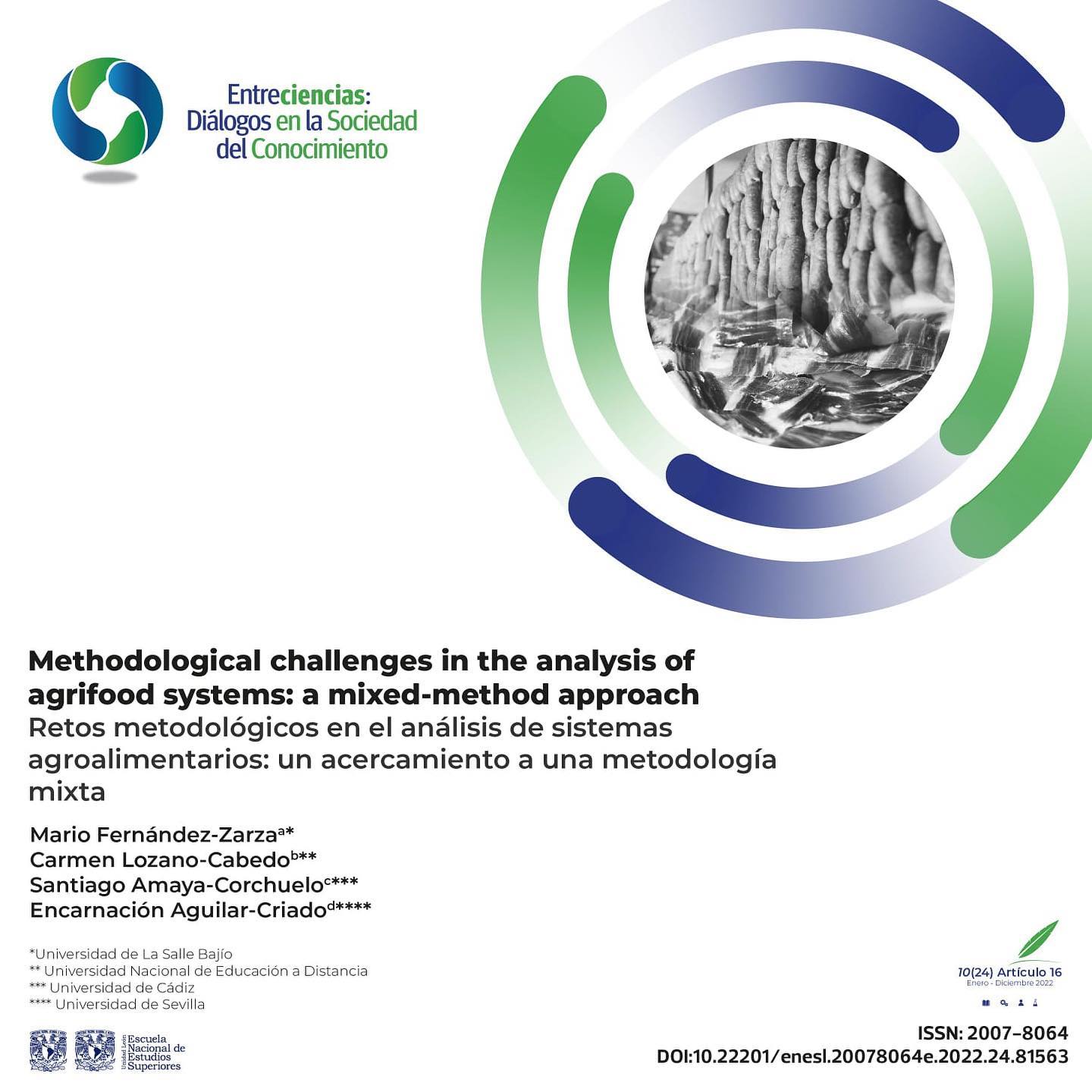Methodological challenges in the analysis of agrifood systems: a mixed-method approach
Main Article Content
Abstract
Objective: The main goal of this paper consists in analyzing the potential of mixed methods used in the study of two agrifood systems: Iberian ham (Spain) and chorizo from the Toluca Valley (Mexico).
Research limitations: Opposing cultural contexts that allowed different strategies to be used which sought not only to collect information from the diverse actors in each system but also face the methodological challenges that currently prevail. These challenges are linked to the diversity of the actors themselves and to the use of new technologies for data collection.
Methodological design: To solve these methodological shortcomings, mixed methods have been implemented with the support of technological innovations.
Results: Results allow us to verify that the employment of mixed methods is an excellent means for leveraging resources effectively and efficiently. In Spain, employing a self-administered survey enabled rural manufacturers to control the timing of their response. Regarding consumer results, these prove that collecting data via smartphone is highly recommended. In the case of Mexico, starting the research quatitatively allowed the building of trust, a factor which is critical given the levels of violence in Mexican society that generate mistrust and, ultimately, lead to a refusal to participate in academic research.
Findings: The main contribution of this article is that, based on real and complex cases, it provides evidence of the potential and strategies to be followed for analyzing agrifood systems in a cross-cultural research. Mixed methods emerge as an excellent means for collecting data in global dynamics.
Downloads
Article Details

This work is licensed under a Creative Commons Attribution-NonCommercial-NoDerivatives 4.0 International License.

Entreciencias: Diálogos en la Sociedad del Conocimiento recognizes and respects the moral rights of authors as well as ownership rights transferred in non-exclusivity to the journal for its open access dissemination and its preservation. Hence, authors who publish in this journal accept the following conditions:
- Entreciencias: Diálogos en la Sociedad del Conocimiento from Universidad Nacional Autónoma de México is distributed under a Licencia Creative Commons Atribución-NoComercial-SinDerivar 4.0 Internacional, which allows the information and metadata to be used without commercial ends as long as proper citation is utilized.
Authors will have the right to non-exclusively distribute the contribution made to Entreciencias: Diálogos en la Sociedad del Conocimiento. That is, they will be able to include it in an institutional repository or disseminate it in other digital or printed media as long as it is explicitly stated that it was first published in Entreciencias: Diálogos en la Sociedad del Conocimiento. The following information must additionally be included: author, year, volume, page numbers, electronic paging, and DOI.
Authors, whose publications have been accepted, will have to send the Letter of Copyright Transfer in the corresponding format, filled out and signed by the author or authors.
